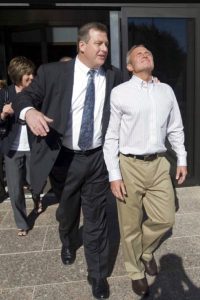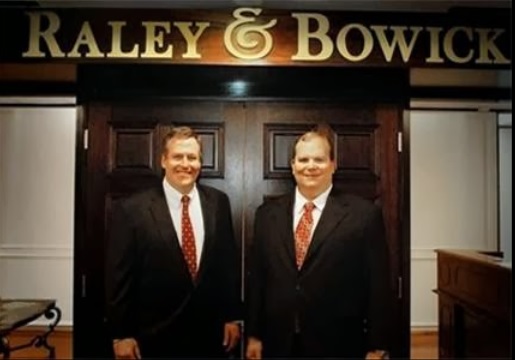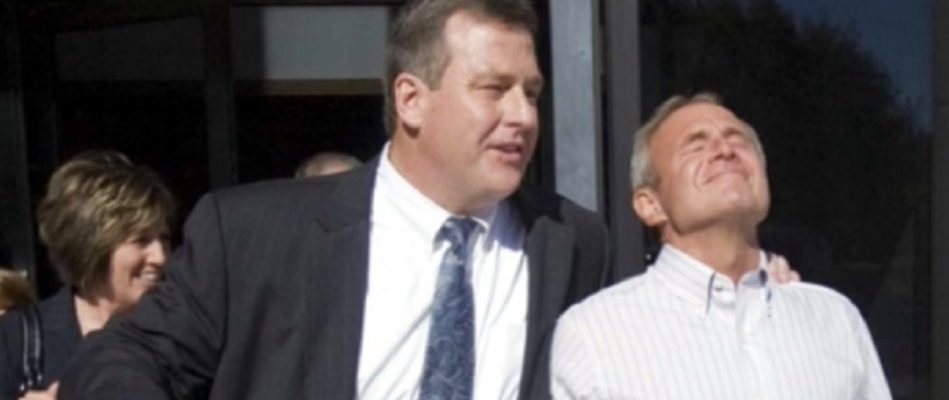 Raley, a civil trial lawyer whose firm focuses mostly on commercial litigation, is not afraid to take on murder cases when he believes the accused is actually innocent and suffered injustice. One such noteworthy case involved Michael Morton, who spent nearly 25 years in prison before being exonerated by DNA evidence through Raley’s efforts. “Very few people can look to somebody and say that you owe your life to him,” Morton says. “I can point to him [Raley] and say, ‘That’s the guy. That’s the guy who got me out. He’s my friend. He’s my brother. When somebody does something like that for you, you’re never the same.”
Raley, a civil trial lawyer whose firm focuses mostly on commercial litigation, is not afraid to take on murder cases when he believes the accused is actually innocent and suffered injustice. One such noteworthy case involved Michael Morton, who spent nearly 25 years in prison before being exonerated by DNA evidence through Raley’s efforts. “Very few people can look to somebody and say that you owe your life to him,” Morton says. “I can point to him [Raley] and say, ‘That’s the guy. That’s the guy who got me out. He’s my friend. He’s my brother. When somebody does something like that for you, you’re never the same.”
Raley received a phone call in 2004 from the New York based Innocence Project and was asked to handle Morton’s case pro bono. Morton had been convicted in 1987 in Williamson County, Texas for the murder of his wife Christine. His defense at trial was that she was murdered by an unknown home intruder while he was at work.
“I had never handled a criminal case before, but the Innocence Project heard about me from a friend who saw me try a brain damage case in Houston,” Raley explains. “I read Michael’s case file and realized there was no solid evidence of guilt. I visited Michael in prison, and was incredibly moved by his honesty. I came home and told my wife, Kelly, ‘My God, he’s innocent! We have to get him out!’ She looked me squarely in the eyes and said, ‘Then do it.’”
It was a six and one-half year fight in state and federal courts to obtain DNA testing on a bloody bandana found near the murder scene, opposed by the local DA every step of the way. Raley promised Morton he would never quit. When Raley finally won the right to test the bandana’s DNA, the results proved Morton innocent, identified the actual murderer, and solved the case of another murder committed by the same man. Michael Morton was declared “actually innocent” under Texas law. Raley and the Innocence Project also figured out that Morton’s original prosecutor (who by the time of Raley’s involvement had become a District Judge) concealed important evidence of Morton’s innocence during the 1987 trial. This resulted in the former prosecutor’s removal from the bench, disbarment, and serving of time in jail. The “Michael Morton Act” now requires all Texas prosecutors to disclose their investigations to the court and defense counsel.
Raley thanks his law partner, Bobby Bowick, for carrying the firm when Raley was away on the Morton case. “I could not have done it without him,” said Raley. Raley adds that in the firm’s bread-and-butter complex commercial cases, including patent infringement, Bowick (who has two engineering degrees) “tries very hard to explain science to me.” “This is often humorous, but we get it done.”
When asked if he were in charge of making the laws of Texas what changes would he enact, he replied that he is absolutely opposed to governmental decisions that discriminate against any group of people. “Equal rights, and equal justice under the law, are bedrock principles,” he proclaims. “I am concerned that these fundamental values are eroding.” Several influential Texans recently tried to persuade Raley to run for statewide office, including U.S. Senator and Attorney General. He politely declined, saying that although it would be a great honor to represent Texans, it was not the right time for him and his family. “It is something I may consider in the future,” he said.
 Raley earned a B.A. in Letters (History, Literature, and Philosophy) summa cum laude from the University of Oklahoma, where he was inducted into Phi Beta Kappa, played Offensive Guard on the O.U. Varsity football team, and was a Rhodes Scholarship finalist. While earning his J.D. at Oklahoma University Law Center, he served as Note Editor of the Oklahoma Law Review and was named “Best Speaker” in the school-wide moot court competition. He was awarded a Rotary Fellowship, and obtained a LL.M. from the University of Aberdeen, Scotland.
Raley earned a B.A. in Letters (History, Literature, and Philosophy) summa cum laude from the University of Oklahoma, where he was inducted into Phi Beta Kappa, played Offensive Guard on the O.U. Varsity football team, and was a Rhodes Scholarship finalist. While earning his J.D. at Oklahoma University Law Center, he served as Note Editor of the Oklahoma Law Review and was named “Best Speaker” in the school-wide moot court competition. He was awarded a Rotary Fellowship, and obtained a LL.M. from the University of Aberdeen, Scotland.
Fulbright and Jaworski, L.L.P. interviewed Raley during law school. He thought he would “come to Houston for a few years of top flight training and then return to Oklahoma.” However, “Kelly and I fell in love with Houston and put down roots. It was a great place to raise our children.” Raley was a litigation partner at Fulbright many years. In 2010, he founded Raley & Bowick, which has won verdicts, judgments, and recovered settlements exceeding $200 million. Raley has been first chair trial counsel in over 40 jury trials in complex civil matters. His tenacity and skill are internationally recognized, and he has been featured in or interviewed by CNN, FOX News, Texas Monthly, The New York Times, The Wall Street Journal, NPR, Katie Couric, and 60 Minutes. He has represented several celebrity clients, including Maya Angelou, Brian Bosworth, Richard “Racehorse” Haynes, and Hilary Duff.
Raley’s advice to recent law graduates: “Find an area of practice you are passionate about, then roll up your sleeves and go to work. No matter what, preserve your integrity. A good reputation can take years to build and be lost in an instant.”
Raley enjoys teaching adult Sunday School at Chapelwood United Methodist Church. He also loves acting in local theaters. “It is my ‘empty nester’ hobby. It’s a great deal of fun and, like all art, deeply therapeutic.”
A successful marriage of 33 years proves that he and his wife Kelly are doing something right. His advice: “Have a sense of humor, especially about yourself. Don’t go to bed angry. Find a way to discuss issues calmly and work them out. Important matters should be jointly decided. Remember that true love is manifested in action, in deeds that show that you care more for your partner than yourself. Be honest, always.”
